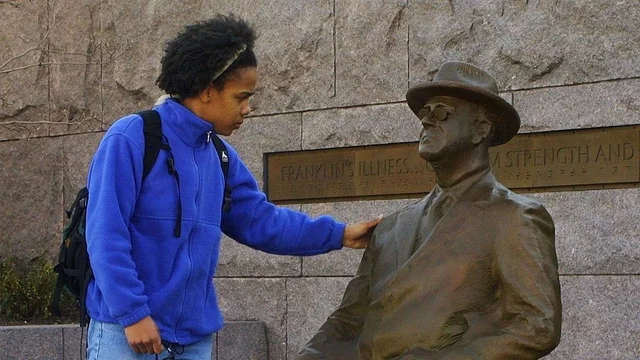BY GIL TROY, OPINION CONTRIBUTOR — 01/07/21 01:00 PM EST 192THE VIEWS EXPRESSED BY CONTRIBUTORS ARE THEIR OWN AND NOT THE VIEW OF THE HILL
Eighty years ago this week, Franklin D. Roosevelt delivered his eighth State of the Union address to a divided nation. As Nazis blitzkrieged Europe, Americans froze, unwilling to fight so soon after the Great War, yet unable to overlook Hitler’s threat. FDR tried mobilizing Americans to fight for four essential human freedoms: “The first is freedom of speech and expression — everywhere in the world. The second is freedom of every person to worship … everywhere in the world. The third is freedom from want … everywhere in the world. The fourth is freedom from fear… anywhere in the world.”
We know the happy ending. Rallying around the Four Freedoms, Americans triumphed, spreading freedom at home and abroad. That’s history as immaculate conception — Patrick Henry chose liberty over death and freedom emerged; Abraham Lincoln spoke at Gettysburg and the American nation bonded; FDR proclaimed Four Freedoms and Americans mobilized.
Actually, the speech failed at first. It took the Japanese surprise attack on Pearl Harbor 11 months later to drag Americans into World War II. Even then, most G.I. Joes knew what they were fighting against — not for. Deep into 1942, pollster George Gallup reported that the president’s words had “not registered a very deep imprint.” Without the help of an artist and his first lady, we wouldn’t be citing Roosevelt’s Four Freedoms today.
On that cold January day in 1941, the most aristocratic of presidents articulated the most far-reaching of freedoms, rooted in every person’s inherent dignity. It’s the great American paradox. Franklin Roosevelt had his limits — tolerating the lynching of Blacks, the relocation of Japanese Americans and the banning of European Jews. But, like most Americans, he believed in America, appreciated its democratic aspirations as “the very antithesis of the so-called new order of tyranny which the dictators seek to create with the crash of a bomb.”
FDR was bred with this all-American faith in democracy and service. While paying today’s equivalent of $10,000 monthly for his Harvard undergraduate digs, he explained that his family’s privilege made him feel extra-responsible: “[B]eing born in a good position, there was no excuse” for not doing your “duty by the community.”
Roosevelt’s Four Freedoms evolve from…
Read more at:

